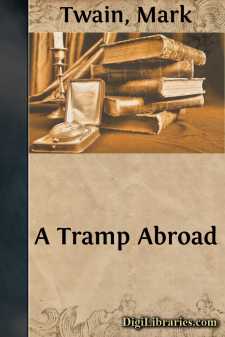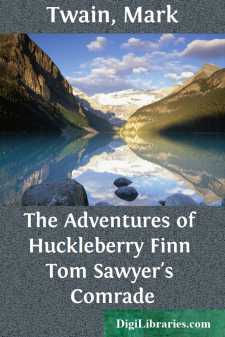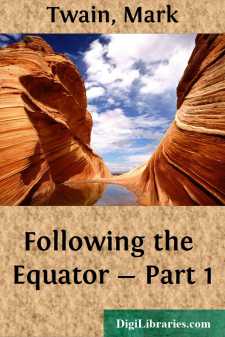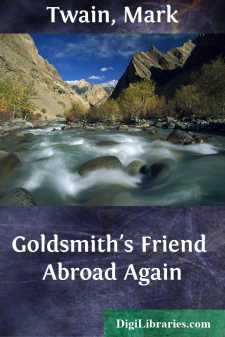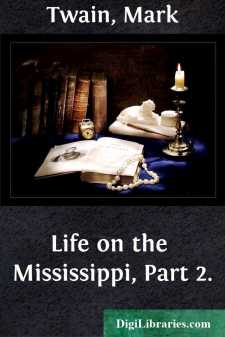Categories
- Antiques & Collectibles 13
- Architecture 36
- Art 48
- Bibles 22
- Biography & Autobiography 813
- Body, Mind & Spirit 142
- Business & Economics 28
- Children's Books 13
- Children's Fiction 10
- Computers 4
- Cooking 94
- Crafts & Hobbies 4
- Drama 346
- Education 46
- Family & Relationships 57
- Fiction 11828
- Games 19
- Gardening 17
- Health & Fitness 34
- History 1377
- House & Home 1
- Humor 147
- Juvenile Fiction 1873
- Juvenile Nonfiction 202
- Language Arts & Disciplines 88
- Law 16
- Literary Collections 686
- Literary Criticism 179
- Mathematics 13
- Medical 41
- Music 40
- Nature 179
- Non-Classifiable 1768
- Performing Arts 7
- Periodicals 1453
- Philosophy 64
- Photography 2
- Poetry 896
- Political Science 203
- Psychology 42
- Reference 154
- Religion 513
- Science 126
- Self-Help 84
- Social Science 81
- Sports & Recreation 34
- Study Aids 3
- Technology & Engineering 59
- Transportation 23
- Travel 463
- True Crime 29
Sort by:
by:
Mark Twain
My beautiful new watch had run eighteen months without losing or gaining, and without breaking any part of its machinery or stopping. I had come to believe it infallible in its judgments about the time of day, and to consider its constitution and its anatomy imperishable. But at last, one night, I let it run down. I grieved about it as if it were a recognized messenger and forerunner of calamity. But...
more...
by:
Mark Twain
THE SIEUR LOUIS DE CONTE To his Great-Great-Grand Nephews and Nieces This is the year 1492. I am eighty-two years of age. The things I am going to tell you are things which I saw myself as a child and as a youth. In all the tales and songs and histories of Joan of Arc, which you and the rest of the world read and sing and study in the books wrought in the late invented art of printing, mention is made...
more...
by:
Mark Twain
CHAPTER I. My brother had just been appointed Secretary of Nevada Territory—an office of such majesty that it concentrated in itself the duties and dignities of Treasurer, Comptroller, Secretary of State, and Acting Governor in the Governor's absence. A salary of eighteen hundred dollars a year and the title of "Mr. Secretary," gave to the great position an air of wild and imposing...
more...
by:
Mark Twain
CHAPTER I [The Knighted Knave of Bergen] One day it occurred to me that it had been many years since the world had been afforded the spectacle of a man adventurous enough to undertake a journey through Europe on foot. After much thought, I decided that I was a person fitted to furnish to mankind this spectacle. So I determined to do it. This was in March, 1878. I looked about me for the right sort of...
more...
by:
Mark Twain
Chapter XV. Tom as King. The next day the foreign ambassadors came, with their gorgeous trains; and Tom, throned in awful state, received them. The splendours of the scene delighted his eye and fired his imagination at first, but the audience was long and dreary, and so were most of the addresses—wherefore, what began as a pleasure grew into weariness and home-sickness by-and-by. Tom said the...
more...
by:
Mark Twain
A Question of Law THE slaughter-house is gone from the mouth of Bear Creek and so is the small jail (or 'calaboose') which once stood in its neighborhood. A citizen asked, 'Do you remember when Jimmy Finn, the town drunkard, was burned to death in the calaboose?' Observe, now, how history becomes defiled, through lapse of time and the help of the bad memories of men. Jimmy Finn was...
more...
by:
Mark Twain
CHAPTER I You don't know about me without you have read a book by the name of The Adventures of Tom Sawyer; but that ain't no matter. That book was made by Mr. Mark Twain, and he told the truth, mainly. There was things which he stretched, but mainly he told the truth. That is nothing. I never seen anybody but lied one time or another, without it was Aunt Polly, or the widow, or maybe Mary....
more...
by:
Mark Twain
A man may have no bad habits and have worse.—Pudd'nhead Wilson's New Calendar. The starting point of this lecturing-trip around the world was Paris, where we had been living a year or two. We sailed for America, and there made certain preparations. This took but little time. Two members of my family elected to go with me. Also a carbuncle. The dictionary says a carbuncle is a kind of jewel....
more...
by:
Mark Twain
LETTER I SHANGHAI, 18—. DEAR CHING-FOO: It is all settled, and I am to leave my oppressed and overburdened native land and cross the sea to that noble realm where all are free and all equal, and none reviled or abused—America! America, whose precious privilege it is to call herself the Land of the Free and the Home of the Brave. We and all that are about us here look over the waves longingly,...
more...
by:
Mark Twain
Chapter 6 A Cub-pilot's Experience WHAT with lying on the rocks four days at Louisville, and some other delays, the poor old 'Paul Jones' fooled away about two weeks in making the voyage from Cincinnati to New Orleans. This gave me a chance to get acquainted with one of the pilots, and he taught me how to steer the boat, and thus made the fascination of river life more potent than ever...
more...





